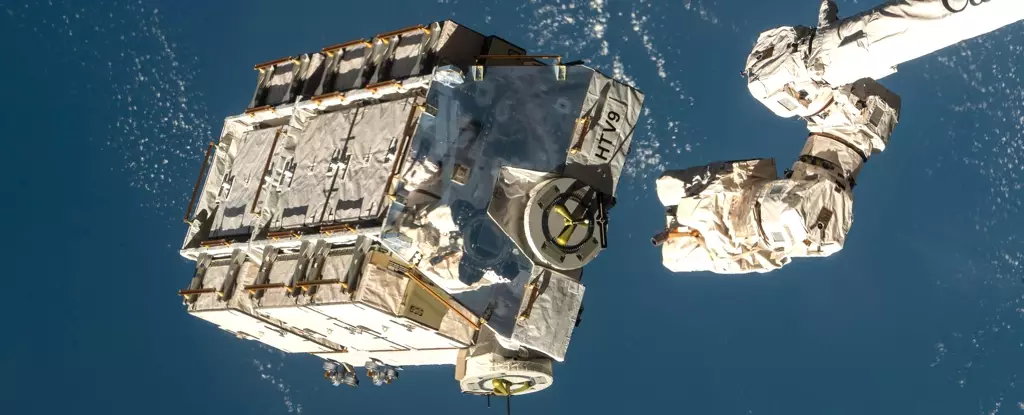Space debris is becoming a growing concern as spatial traffic continues to rise. The recent incident involving an American family in Florida highlights the potential dangers of objects falling from space and the need for proper protocols to address such situations.
A small piece of debris, weighing just 700 grams, fell from space and crashed through the roof of Alejandro Otero’s home in Naples, Florida. The impact caused significant damage, leaving a hole in the roof and disrupting the lives of the family members present at the time. The object was later identified as part of a cargo pallet of used batteries released from the International Space Station as waste in 2021.
NASA confirmed the origin of the debris and acknowledged the incident. The law firm representing the affected family has taken action by filing a claim against NASA for over $80,000 in compensation. The outcome of this claim could set a precedent for how future incidents involving space debris are handled and the liabilities of space agencies.
The emotional impact of such events cannot be overlooked. While no physical injuries were reported, the psychological toll of a “near miss” situation like this can be significant. The affected family is seeking adequate compensation to address the stress and trauma caused by the incident.
This incident serves as a reminder of the risks associated with space debris and the importance of monitoring and managing objects in orbit. As space exploration and commercial activities in space increase, proper protocols and regulations must be in place to prevent similar incidents in the future. Collaborative efforts among space agencies, governments, and other stakeholders are essential to ensure the safety of individuals on Earth and in space.
The recent claim against NASA for the damages caused by space debris highlights the need for proactive measures to address the issue of space trash. While the outcome of this legal action remains to be seen, it underscores the importance of accountability and responsibility in managing objects in orbit. As we continue to explore and utilize space, it is crucial to prioritize safety and minimize the risks associated with space debris for the benefit of all.


Leave a Reply